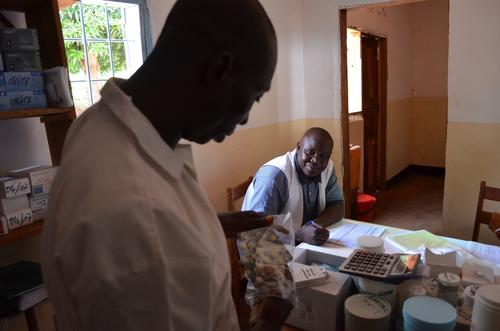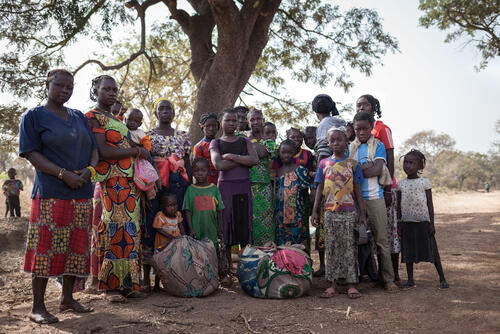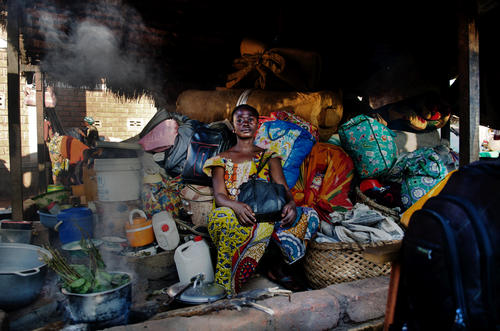Pelé Hubert has worked in Bangassou, Central African Republic as an outreach nurse supervisor for Médécins Sans Frontières (MSF) since 2015. In spite of the extremely volatile security situation in 2017, he continued to bring vital humanitarian aid to his compatriots until the suspension of activities at the end of November.
“In 2015 and 2016, Bangassou was a little corner of paradise for me. Life was back on track after the 2013-2014 crisis, there was a good relationship between the Christian and Muslim communities and the economy was recovering. Healthcare was still a problem but MSF had opened a large-scale project at the hospital and in different health centres.
But in March 2017, the situation started to get worse. First of all, there was fighting in Bakouma, some 150 kilometres to the north of Bangassou. There were rumours everywhere and people started being afraid to go out, to go and look after their fields for fear of being attacked, even though it was the season for weeding the crops before the beginning of the rains.
The fighting got closer and finally reached the town on 13 May. That was when the ordeal in Bangassou started. Everything was back at zero. The economy crashed, the good relationship between the communities was broken, and so was the security. It was night when the gunshots started. I was at home with my wife and three children aged 16, eight, and four. We couldn’t move.
Then a friend came to tell me that there was a route, more or less safe, that we could use to take our families to Ndu, on the other side of the border. I made my family leave with this friend and waited at the house for them to call me to say they had arrived safe and sound. And then I put on my MSF vest and left to meet my colleagues at the base.
What motivated me to work in spite of all the difficulties in Bangassou this year was seeing the real needs of the population in front of me. For example, the Muslim patient I met at the site for displaced people at a meeting for people living with HIV/AIDS. He had lost his antiretroviral medication when he fled, and he was there, distraught, not knowing who to ask for help. Finally, he told me about his problem and I was really moved, I saw how difficult it was for him to lose his anonymity and speak openly about his illness. But it was necessary, because owing to the interruption of his treatment his health had deteriorated and he nearly died.
I was in Bangassou when the two women were killed outside the hospital. I was there when our ambulance was held by armed men for several hours. But I was on my day off when the decision was taken to suspend our activities following a robbery at our base.
I welcomed my colleagues who returned, very shaken, many of them crying. It was horrible for them to leave our patients when we knew they really needed us. In the 24 hours that followed our departure, there were five deaths at the hospital because the team wasn’t there to care for them. We had a huge feeling of guilt, but we had no choice: our work had become too dangerous.”






